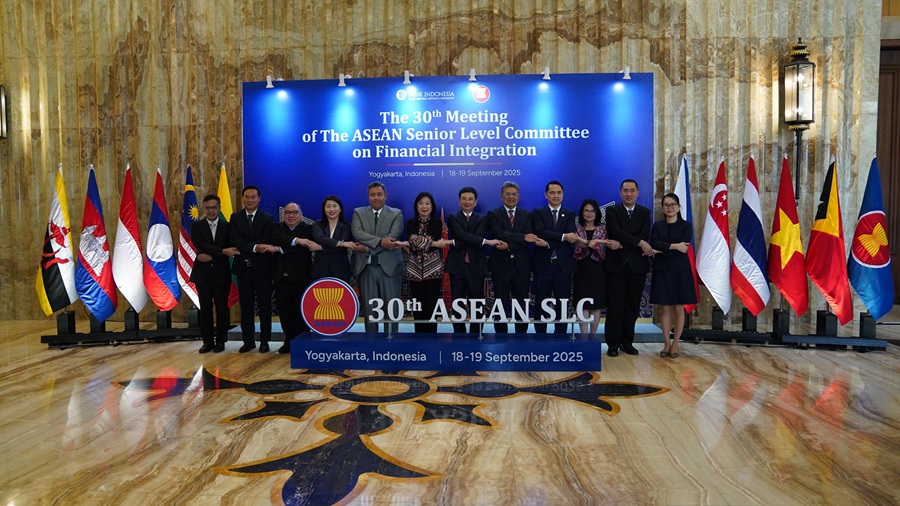ASEAN central banks have agreed to intensify efforts to strengthen regional financial stability, resilience, and integration (19/9). Amid global uncertainty, supply chain fragmentation, rapid digitalization, and the energy transition, ASEAN recognizes the need to deepen financial integration to maintain resilience and unlock new growth opportunities.
This consensus emerged during the 30th ASEAN Senior Level Committee on Financial Integration (SLC) meeting held in Yogyakarta on September 18–19, 2025. Bank Indonesia and the State Bank of Viet Nam acted as co-chairs of the meeting.
Indonesia Commits to Reducing Barriers and Expanding Local Currency Use
Deputy Governor of Bank Indonesia, Filianingsih Hendarta, affirmed Indonesia’s commitment to strengthening trade and direct investment integration across ASEAN. Key strategies include reducing non-tariff barriers, accelerating payment system connectivity, and expanding the use of local currencies.
Filianingsih also highlighted the importance of enhancing the regional safety net. She encouraged the ASEAN financial sector to play a vital role in maintaining resilience while deepening financial integration.
Local Currency Transactions as a Key Financial Tool
“Bank Indonesia continues to strengthen the commitment to the use of local currencies (local currency transaction or LCT) as an important instrument to reduce external vulnerabilities and deepen financial integration,” said Filianingsih.
She further emphasized the need to improve crisis management amid deeper integration of banking and capital markets to ensure regional stability.
Next ASEAN SLC Meeting Scheduled in the Philippines
The upcoming ASEAN SLC meeting is planned for the first quarter of 2026 in the Philippines. Bank Indonesia and the State Bank of Viet Nam (SBV) will once again serve as co-chairs for this event.
PHOTO: BANK INDONESIA
This article was created with AI assistance.
Read More






 Wednesday, 04-03-26
Wednesday, 04-03-26







